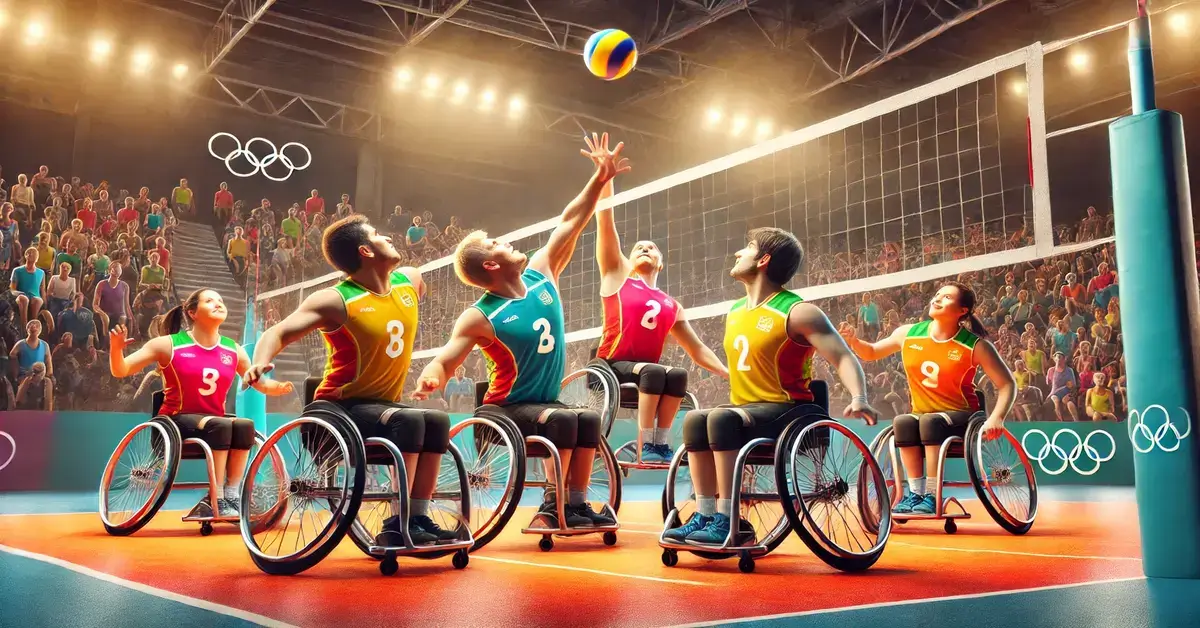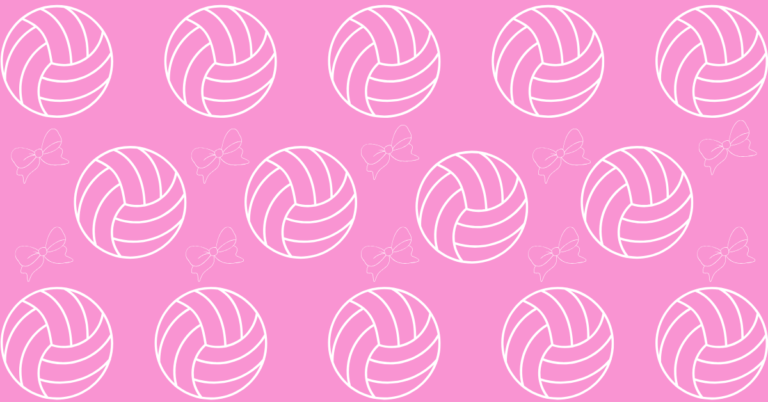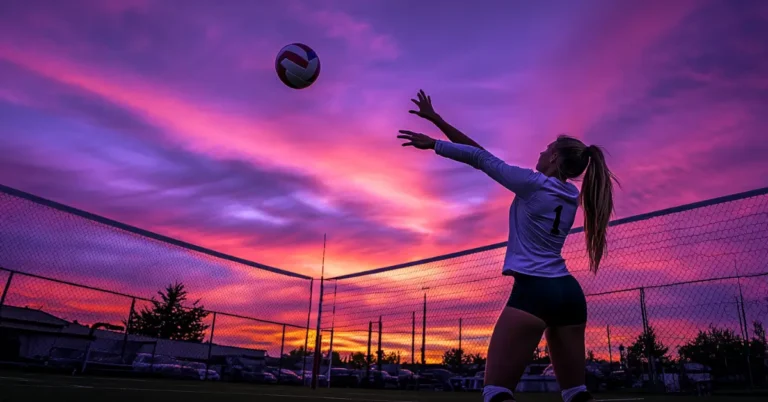When talking about Special Olympics Volleyball Team with my friends it’s pretty obvious that Special Olympics are not that present on television or other media. For most people it’s not that impressive watching handicapped people doing sports.
But here is where I want to jump in and with this article I’ll try to put a spotlight on all the unbelievably talented and outstanding performances of handicapped athletes.
Having in mind what handicapped people achieve in comparison to non-handicapped people I find Special Olympics even more fascinating as the other ones.
So let’s dive into the incredible world of the Special Olymics Volleyball Team. Our Unified Team showcases how sports can bring people together, combining athletes with and without intellectual disabilities to promote true inclusion.
The Fundamentals of Special Olympics Volleyball
The Special Olympics volleyball team brings a unique and inclusive experience to athletes of all abilities. By focusing on specific rules, court layout, and simple equipment, we make sure everyone can join in and enjoy the game.
Understanding the Sport of Volleyball
Volleyball is a game that involves two teams aiming to score points by hitting a ball over a net. Our teams use basic skills such as serving, passing, setting, and hitting the ball with their hands. Each team is allowed three touches to get the ball over the net and into the opponent’s court.

Players love this game because it can be played almost anywhere, whether it’s a beach, gym, or outdoor court. It’s friendly and accessible, making it perfect for athletes of all ages and skill levels. The simplicity and fun nature of the game make it attractive to many.
Rules and Regulations Specific to Special Olympics
Special Olympics volleyball has specific rules and regulations that help include everyone. Each match consists of different events like Team Skills Volleyball, Individual Skills Competition, and Unified Sports Team Competition.

The games may be shortened to fit the needs of the athletes, like playing to 5 rally points instead of the standard 25. The special rules ensure fairness and safety, allowing everyone to develop their abilities and enjoy the sport fully. Coaches work closely with athletes to ensure they understand these guidelines.
Court Layout and Equipment
The volleyball court for Special Olympics follows a layout similar to standard volleyball courts, with a few adjustments. It is divided by a net, with each side measuring 9 meters by 9 meters. The 3-meter line is crucial as it marks where specific players are restricted in their movements.

Equipment is minimal. All we need is a volleyball, a net, and appropriate athletic wear. The court setup allows for easy access, and quick adjustments make sure it’s suitable for all players. Special equipment like lightweight balls can also make the game more enjoyable and inclusive for everyone on our team.
Building a Team
Creating a successful Special Olympics volleyball team involves committed coaches, dedicated athletes, and an inclusive community. Key factors include the coach’s leadership, athlete recruitment and training, and fostering an environment where everyone feels valued and supported.
Role of a Coach in Special Olympics
The coach is the backbone of any Special Olympics volleyball team. Good coaches teach skills and foster a positive attitude and team spirit. They design effective training sessions, focusing on different skills like serving, spiking, and blocking.

Coaches also prioritize creating game strategies that play to each athlete’s strengths. This personalized approach not only enhances performance but also builds confidence. Besides physical training, coaches promote sportsmanship and teamwork, ensuring that both victories and losses are valuable learning experiences.
Recruitment and Training of Athletes
Recruiting athletes for a Special Olympics volleyball team requires a strategic approach. We look for athletes with enthusiasm and a willingness to learn. Schools, community centers, and local disability organizations are great places to start. Once recruited, athletes go through a series of training sessions focusing on basic volleyball skills.

Training includes drills for passing, setting, and hitting. Coaches use adaptive techniques to meet each athlete’s needs, ensuring everyone progresses at their own pace. Regular practice scrimmages help athletes experience game-like scenarios, which is essential for building confidence and understanding of the game dynamics.
Creating an Inclusive Environment
An inclusive environment is crucial for the emotional and social well-being of all athletes. We make sure everyone feels like an essential part of the team, regardless of their abilities. Encouraging open communication and celebrating individual achievements go a long way in creating a supportive community.
Parents and caregivers are also involved in fostering this environment. We organize events that highlight both athletic and social skills, which helps athletes feel integrated into the broader community. For instance, everyone participates in team-building exercises and social gatherings, ensuring a sense of belonging.
National and International Volleyball Events
Our special Olympics volleyball team competes in exciting events at both national and international levels. These competitions bring together athletes from around the world, showcasing their skills and sportsmanship.
Special Olympics World Games Berlin 2023
The recent Special Olympics World Games in Berlin 2023 was a milestone. Our volleyball team faced tough competition from international teams, showcasing their skills and determination. The games took place in various venues around Berlin, bringing together athletes from all over the globe.
Divisioning was a key feature, ensuring fair play by grouping teams of similar abilities. This way, every match remained competitive and engaging. The event helped strengthen bonds among athletes and promoted the message of inclusion and respect.
Special Olympics USA and Local Competitions
On the home front, our participation in the 2022 Special Olympics USA Games was a memorable experience. Athletes from different states converged to compete in a range of sports, including volleyball. Our team was proud to be part of this large-scale event, where they demonstrated their skills and teamwork.
Local competitions are equally important for our team’s development. These events provide regular opportunities for practice and improvement. Competing locally also helps build the team’s confidence and prepares them for larger international events. Participating in these competitions underscores the community’s support and enthusiasm for our special Olympics volleyball team.
Community and Family Involvement
Engaging the community and family members is a crucial aspect of supporting the Special Olympics volleyball team. Their involvement not only enhances the experience for the athletes but also fosters a sense of unity and inclusion.

Support Systems and the Role of Families
Families play an essential role in the success of the Special Olympics volleyball team. Many family members, like Tamara Knutsen-Hagemann from Manhattan, Kansas, take on active roles such as coaching and organizing. They create a supportive environment that motivates athletes to perform their best.
Besides coaching, families often help with logistics, like arranging transportation to events. They also provide emotional support, celebrating successes and helping athletes through challenges. Their commitment strengthens the team’s bond and fosters a close-knit, encouraging atmosphere.
By being involved, families help promote inclusion and understanding within the sport. They learn together, bridging gaps and building lifelong connections. This collaboration enriches the experiences of both the athletes and their families, making the Special Olympics volleyball team a meaningful and shared journey.
Local Community Engagement and Events
Local communities often host events and initiatives that support the Special Olympics volleyball team. Schools like Mill Valley High School and local organizations frequently organize activities to involve the community in the team’s efforts. These events range from fundraisers to public matches, where everyone can participate and show their support.
Community members volunteer their time and resources to help make these events successful. From setting up venues to cheering at games, their involvement is vital. Such engagement fosters a sense of pride and belonging, enhancing the impact of the Special Olympics beyond the court.
Special Olympics Ambassadors play a key role in promoting these events. They raise awareness and encourage more people to participate. This collaboration between the community and the team helps build a strong network of support, making every event a celebration of solidarity and inclusion.
FAQs
Let’s delve into some frequently asked questions about the Special Olympics volleyball team. We cover team numbers, qualifications, and the specifics of qualifying teams for the 2024 Olympics.
How Many Olympic Teams are there?
Globally, there are numerous Special Olympics volleyball teams. These teams vary by country and region. They come together for regional and international competitions. For example, at the Special Olympics World Games, we often witness a diverse group of teams from various countries. Each nation can have multiple teams based on skill levels and ages.
Participation in these events shows the widespread interest and inclusivity of volleyball in the Special Olympics community. We can see teams from almost every continent competing with enthusiasm and sportsmanship.
What is a Special Olympics Team?
A Special Olympics team is made up of athletes with intellectual disabilities. They train and compete in various sports, including volleyball. Team members work hard to develop their skills, form friendships, and promote inclusion. The Special Olympics organization provides training and resources to help these athletes succeed.
Coaches play an important role, too. They guide the athletes, provide support, and ensure they understand the rules of the game. Special Olympics teams bring people together, creating a community where everyone is valued and celebrated.
How do you Qualify for the Olympics in Volleyball?
Qualifying for the Special Olympics in volleyball requires meeting certain criteria. Athletes must train at the local level and participate in regional competitions. Success in these regional events can lead to national level competitions. Outstanding performance at the national level can earn a spot in international events like the Special Olympics World Games.
It’s not just about winning. Athletes are also selected based on their effort, teamwork, and sportsmanship. Coaches and officials look for well-rounded athletes who embody the spirit of the Special Olympics.
We hope you could find some valuable input about special olympics volleyball team. Tell us something about you! Are you a fan of special olympics volleyball team? Do you see any difference in excitement when watching one or the other?
If you liked this article you also might dive deeper into our articles about International Volleyball Insights.






